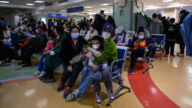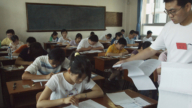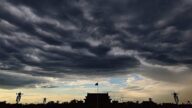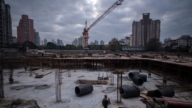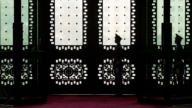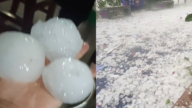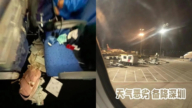【新唐人2011年10月26日讯】10月24号,中共官员在中外记者会表示,为了加强经济资料保密工作,境外媒体在经济数据发布之前的预测行为,必须在法律允许范围内进行,打擦边球不行,超出范围更不行。他们并警告在中国的境外媒体工作者:不该问的别问。
记者会上,有关单位介绍两个经济资料泄密案,一个是原国家统计局办公室秘书室副主任孙振,因多次泄露统计资料给证券行业从业人员,被判处有期徒刑五年。
另外一个是原中国人民银行研究人员伍超明,他将合法获得的统计资料,泄露给证券行业从业人员,被判处有期徒刑六年。
他们两人都是副处级官员,法院认定他们犯有“故意泄露国家秘密罪”。
中共国家保密局发言人杜永胜:“有的境外媒体通过多种渠道、多种方式,向我经济部门和金融证券企业从业人员核对、求证他们的预测数据。这些都是不允许的。”
对此,北京宪政学者陈永苗认为,这些官员在接受采访时,如果涉及到国家机密他们可以选择不说,如果是在公开场合发表的资料数据,那媒体求证是追求事实准确的必要做法,当局不能因此而做出禁止的限制。
北京宪政学者陈永苗:“这跟国家金融危机有关系,还有维稳,维护稳定有关系吧,他可能就是担心这个,你看官方媒体,他就会报这个虚假的数据,那外媒就会报真实的数据,那中共他本身会担心这些真实的数据泄漏出去的话,对他本身政权稳定造成冲击,或者对他的监管造成冲击,所以他可能抓这两个人杀鸡儆猴,告诉他们部门里面的人,别再泄漏秘密了,然后再警告外媒。”
中共国家保密局发言人杜永胜没有明确说明,哪些境外媒体泄露了中国的涉密经济资料,不过他提醒这些海外媒体工作者,在中国就要遵守这里的法律。
杜永胜说:“首先你接触不到中国的国家秘密。如果你偶然接触到了中国的国家秘密,我给你出一个招:尽快报告,不要碰它。否则就可能有麻烦。”
在中国“国家机密”常被拿来当挡箭牌,目地就是限制记者的言论,其中属于保密范围的界线,往往模糊不清。
北京宪政学者陈永苗:“你可以看一下美国或者其他国家,从来没有说,把这种经济数据当作国家秘密来保护的,经济数据统计局的数据,这不应该当作一个国家秘密,或者是国家安全方面作为保护,他不应该来谴责这些中外媒体做这方面的报导,因为这是言论自由和新闻自由的问题。”
总部设在布鲁塞尔的国际记者联合会,不久前对揭露“洛阳性奴案”的记者遇害事件发表声明,谴责中国滥用“保守国家秘密法”,骚扰和恐吓新闻从业者。
新唐人记者秦雪、黄容、薛莉采访报导。
CCP Warns Foreign Media: Don’t Seek the Truth
Anchor:
On October 24, the Chiniese Communist Party (CCP)
announced in a press conference that in an effort to safeguard,
the country’s economic data, any economic forecasts
made by foreign medias must be within the allowable limits set by the CCP.
They warned foreign correspondents and journalists:
“Don’t ask questions that should not be asked!”
Reporter:
In an effort to drive home their point, the CCP talked about
two cases where economic data was in fact leaked.
One case involved Sun Zhen, the former deputy director
of the General Office of the National Bureau of Statistics.
Sun was accused of leaking economic data to the securities industry,
and was sentenced to five years in jail.
The other case involved Wu Chaoming, a former researcher
of People’s Bank of China.
Wu illegally obtained statistical data
and likewise leaked it to the securities industry.
He was sentenced to six years in jail.
Both men are deputy division level officials.
The court found them guilty of “deliberately leaking state secrets.”
Du Yongsheng, spokesman for the China State Security Bureau:
“Some foreign medias use a variety of channels and ways to double check or verify their economic forecasts
with the CCP’s economic department and securities industry.
This is not allowed.”
Chen Yongmiao, a Beijing constitutional scholar disagreed
with the CCP’s line of thinking noting that
the two officials could’ve choosen not answer questions
relating to state secrets.
However, if the data they were referring to was
already available in the public domain,
then media has the right to verify it,
because they have to guarantee the accuracy of such data.
The CCP authorities can’t restrict reporters
from reporting the truth.
Chen Yongmiao, Beijing constitutional scholar:
“This is related to the China’s current financial crisis, and the CCP’s desire to maintain social stability.
The CCP is worried about this, and thus you can see
the CCP’s state-run media reporting false data. But foreign media only uses real data.
The CCP is afraid that the power and stability of its regime
would be greatly impacted if the public knew the real data.
That’s why they caught those two people
and threw them in jail.
It was a warning to others not to leak official data,
and warned foreign medias not to double-check the data that the CCP says is real.”
Du Yongsheng, the spokesman for the China State
Security Bureau, didn’t mention which foreign medias leaked the economic data,
but alerted those correspondents to abide
by the CCP’s laws.
Du Yongsheng, spokesman of China State Security Bureau:
First, you have no right to access China’s national secrets.
But if you come across them by accident, I’ll give you a hint:
report the incident as soon as possible, otherwise, you guys will be in trouble.”
In China, the term, “state secrets," is often used as a tool
to limit medias, as there is no clearcut definition of what constitutes a national secret.
Chen Yongmiao, Beijing constitutional scholar:
In the United States and other countries,
no government bothers to protect their economic data,
nor do they regard it as a national secret.
Economic statistical data cannot be treated as a national secret,
nor can it be protected as a national secret.
The CCP shouldn’t forbid foreign medias
from reporting real economic data.
This is a question of press freedom and
the freedom of expression.”
Upon learning that the Governor of Calif. was coming to visit,
Few days ago, Brussels-based International Federation of
reporters issued a statement regarding a reporter who was killed for revealing
China’s “Luoyang Sex Slave Case.”
The Federation condemned the CCP’s abuse of
its “State Secrets Act,” which allows them to continually harass and intimidate journalists.
NTD reporters Qin Xue, Huang Rong and Xue Li


